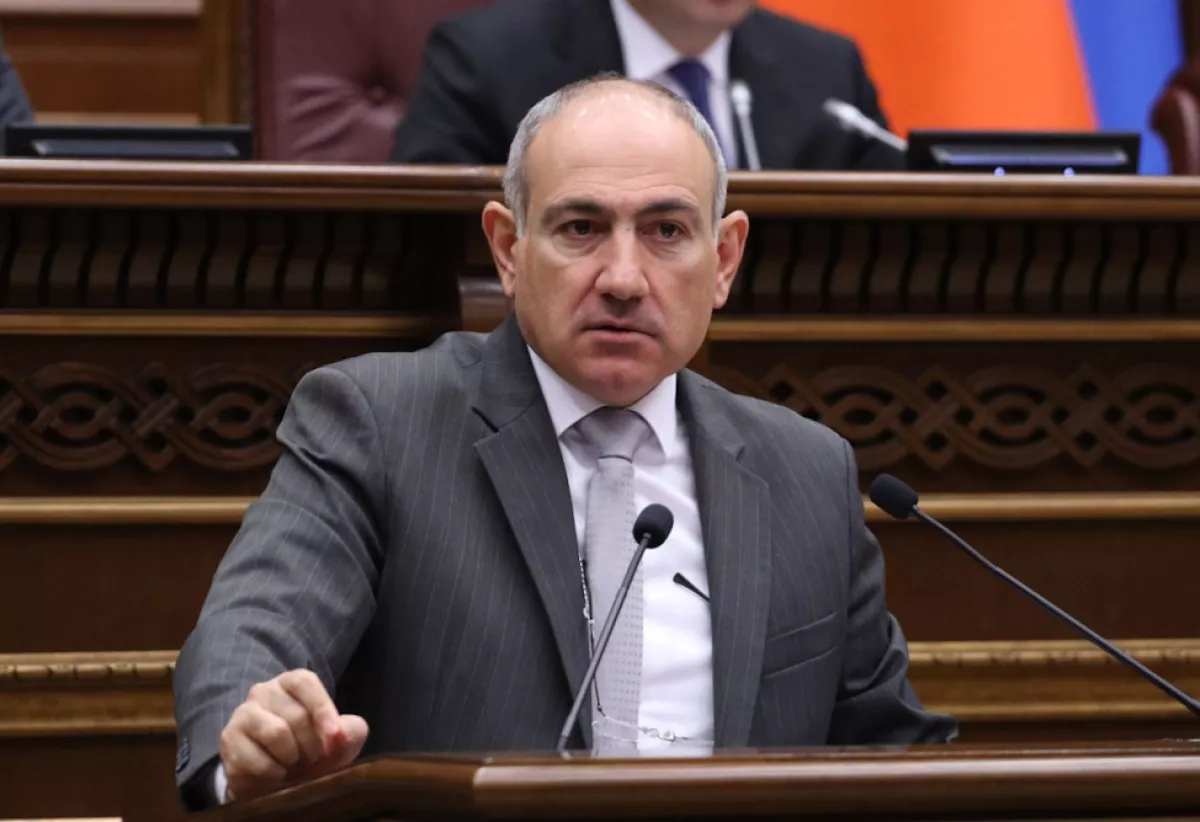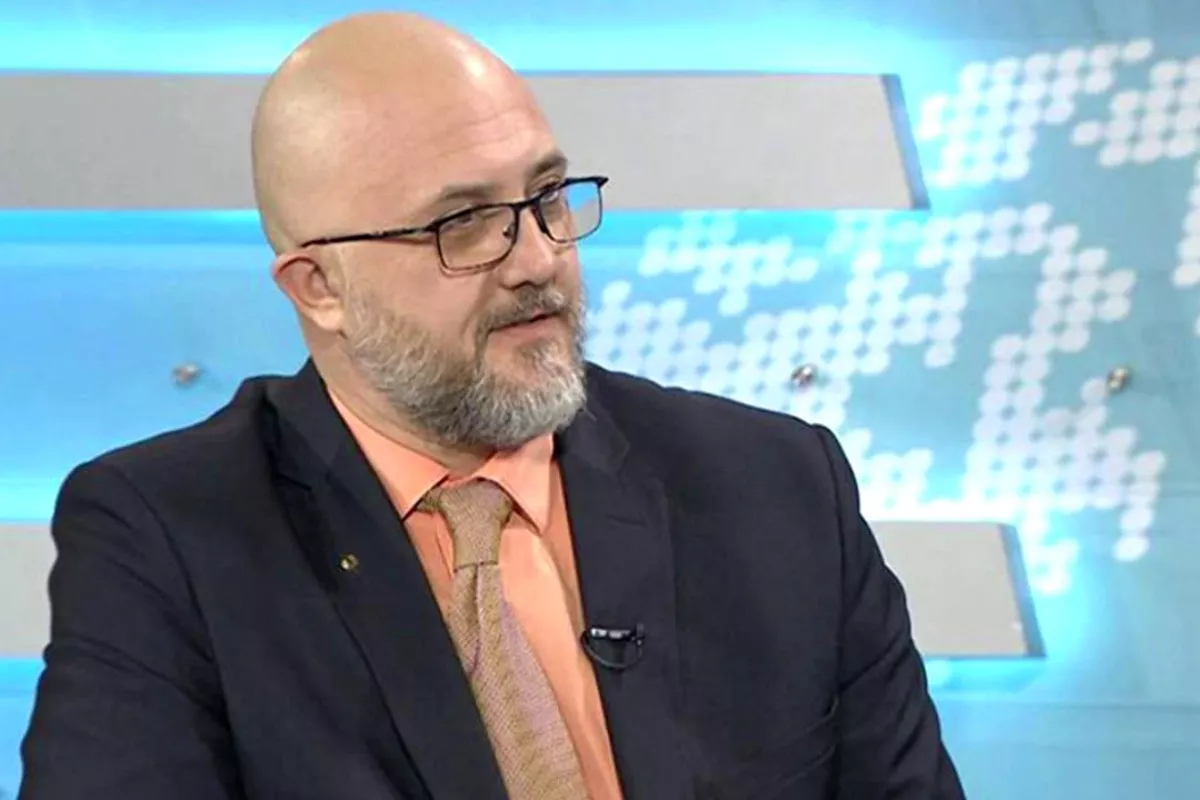Armenian diplomacy on brink of split personality Experts weigh in on Pashinyan’s conflicting statements
Armenia is ready to sign a peace agreement with Azerbaijan while simultaneously dissolving the OSCE Minsk Group. This was announced by Armenian Prime Minister Nikol Pashinyan during a recent speech in parliament.
"Azerbaijan ties the signing of the agreement at an official level to two issues. The first of these is the dissolution of the OSCE Minsk Group structures. We understand Azerbaijan’s agenda regarding the dissolution of the Minsk Group. Indeed, if we are closing the chapter on the conflict, and we are doing so, why would we need a format that deals with its resolution? However, the OSCE Minsk Group, at least de facto, has a broader context, and we want to ensure that Azerbaijan does not view the dissolution of the Minsk Group as a step towards closing the Armenia-Azerbaijan conflict on Azerbaijani territory and transferring it to the sovereign territory of the Republic of Armenia. To dispel this concern, we propose to Azerbaijan that we simultaneously sign a peace agreement and jointly appeal to the OSCE for the dissolution of the Minsk Group structures. In other words, at the same place and at the same moment, we will sign both the first and the second. This is an official proposal," Pashinyan emphasised.

However, later during the same speech in the National Assembly, he made statements that were completely opposite in meaning: "It is obvious that some forces both in Armenia and outside Armenia are carrying out daily propaganda for war and are taking specific actions aimed at bringing it to life. In this context, I find it necessary to respond to all the talks predicting a new escalation and even a new war between Armenia and Azerbaijan. There is no basis for war. Armenia and Azerbaijan have recognised each other's territorial integrity, sovereignty, and the inviolability of internationally recognised borders, and the inadmissibility of the use of force or the threat of force. The peoples of Armenia and Azerbaijan deserve peace and peaceful coexistence. There will be no war — there will be peace," concluded the prime minister.
How should this be interpreted? On one hand, Pashinyan expresses concerns that Azerbaijan may have intentions to invade Armenia and, in this context, fears dissolving the OSCE Minsk Group "too early." On the other hand, he contradicts this by engaging in an indirect dispute with those who predict a new war between Armenia and Azerbaijan, concluding that "there will be no war — there will be peace." In other words, he is contradicting himself. But why?
Foreign experts shared their opinions on this matter with Caliber.Az.

Dr. Greg Simons, a political scientist and professor at Daffodil International University in Dhaka (Bangladesh), says that this is an interesting and quite complex question, influenced by both Armenia's internal and external politics, as well as Pashinyan's vulnerability in terms of political power.
"His main concern is focused on preserving political power, not on the well-being and interests of the country. Domestically, Pashinyan would create political liability for himself by signing a peace agreement. The reason for his resistance is that it would acknowledge Armenia’s defeat in the war, during which Pashinyan was in power as the national leader. And that is not something he will be able to easily endure from a political standpoint.
In terms of foreign policy, Pashinyan may still harbour a vague hope that the United States might somehow intervene in this process on its behalf, to delay the necessity for him to sign a peace agreement and the domestic political consequences.
This alleged U.S. intervention could be based on the belief that Armenia has become a U.S. client state under the Biden administration and, therefore, might be ‘protected.’ However, this is more of a whimsical desire than a realistic calculation, as the U.S. under Trump had entirely different priorities and a different foreign policy agenda," the professor emphasised.
According to him, the logic of the 2019 RAND report (the American research corporation specialising in national security) titled "On Deterring Russia" is currently not a priority.
"So, stalling is a futile endeavour, born out of political desperation. It is an attempt to buy time to delay the inevitable. Furthermore, Pashinyan may be so contradictory in his statements because the internal and external political dimensions in Armenia are absolutely incompatible. This, in itself, creates dilemmas and contradictions. However, there is no clear political course today to resolve these contradictions in a way that aligns with Pashinyan's main objective — to preserve his political power," says Simons.

Russian political analyst and director of the Centre for Strategic Studies of the South Caucasus, Yevgeny Mikhailov, believes it is understandable that Pashinyan continues to sit on multiple chairs at once.
"The fact that Azerbaijan demands the dissolution of the OSCE Minsk Group is entirely justified because it did nothing to de-escalate the conflict. Fearing that this dissolution will somehow influence Azerbaijan's desire to seize something — well, that's just Armenian fairy tales, I would say. Inside Armenia, there are forces that are revanchist, that want to continue fighting. In Azerbaijan, this is not the case," says the expert.
If Azerbaijan gets what it wants, as already agreed upon in 2020, there will be no problems, Mikhailov is confident.
"The fears of Armenia that Azerbaijan will immediately attack after the dissolution of the OSCE Minsk Group are completely unfounded. Moreover, I will say this: I believe that because France is part of the Minsk Group, Armenia does not want its dissolution.
Someone needs the EU and France to continue steering the Armenian political establishment in a pro-Western direction — against Russia and, consequently, Azerbaijan, against signing the peace agreement whose foundations were laid several years ago.
So, Pashinyan is being disingenuous. Suspecting Azerbaijan of intending to invade Armenia is foolish. If Yerevan intends to sign the agreement that was already essentially agreed upon, it should remember that Azerbaijan never breaks its word — unlike Armenia, which says it is ready to sign peace but then immediately provokes incidents on the border. I think Pashinyan needs to make a concrete decision," concluded Mikhailov.








